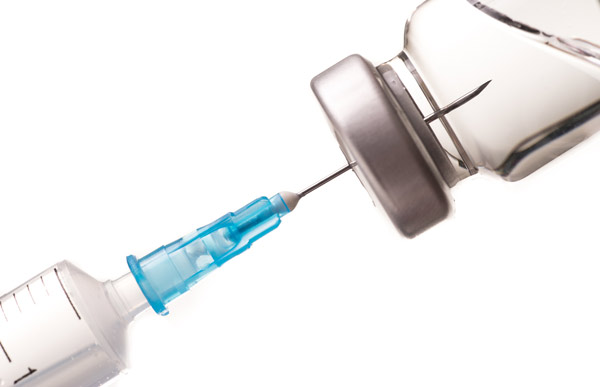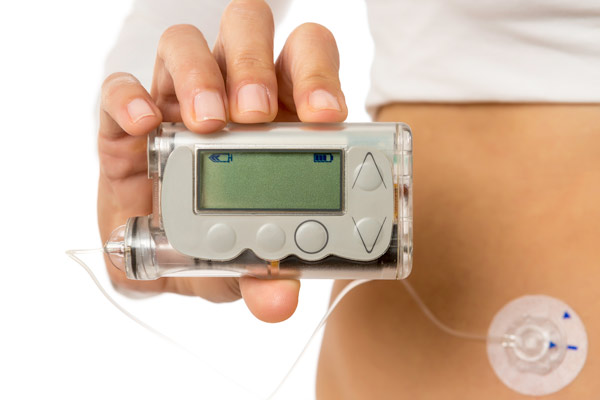RN Train-the-Trainer Course: Delegation Considerations - 3
RN Train-the-Trainer CourseComplete all of the following modules:
Delegation Considerations (continued)
- South Dakota Specific Delegation Considerations
- Delegation Decision-Making
- South Dakota Administrative Rules Relating to Delegation
- Delegating Insulin Dose Determination
- Delegation Case Scenarios
3. South Dakota Administrative Rules Relating to Delegation
§20:48:04.01:01. General criteria for delegation.
The registered nurse is responsible for the nature and quality of nursing care that a client receives under the nurse's direction. To achieve full utilization of the services of a registered nurse or a licensed practical nurse, the licensed nurse may delegate selected nursing tasks to unlicensed assistive personnel. Unlicensed assistive personnel may complement the licensed nurse in the performance of nursing functions but may not substitute for the licensed nurse. Unlicensed assistive personnel may not re-delegate a delegated act.
A licensed nurse is accountable to practice in accordance with the scope of practice as defined in SDCL chapter 36-9. The delegating nurse is accountable for assessing a situation and making the final decision to delegate.
The delegation of nursing tasks to unlicensed assistive personnel must comply with the following criteria:
- The nursing task is one that a reasonable and prudent licensed nurse would find within the scope of sound nursing judgment to delegate;
- The nursing task is one that, in the opinion of the delegating licensed nurse, can be properly and safely performed by unlicensed assistive personnel without jeopardizing the client's welfare;
- The nursing task does not require unlicensed assistive personnel to exercise nursing judgment;
- The licensed nurse evaluates the client's nursing care needs before delegating the nursing task;
- The licensed nurse verifies that the unlicensed person is competent to perform the nursing task; and
- The licensed nurse supervises the performance of the delegated nursing task in accordance with the requirements of §20:48:04.01:02.
§20:48:04.01:02. Supervision
The licensed nurse shall provide supervision of all nursing tasks delegated to unlicensed assistive personnel in accordance with the following conditions:
-
The licensed nurse determines the degree of supervision required after considering the following:
- The stability of the client's condition;
- The competency of the unlicensed person to whom the nursing task is delegated;
- The nature of the nursing task being delegated; and
- The proximity and availability of the licensed nurse to the unlicensed person when the nursing task will be performed;
- The delegating licensed nurse or another licensed nurse is readily available either in person or by telecommunication; and
- If the unlicensed person is providing care in the client's home, the time interval between supervisory visits and whether the visit is conducted in person or via telecommunication is determined by the licensed nurse in accordance with §20:48:04.01:01. The visit shall occur no less than once every 60 days to assure client safety.
§20:48:04.01:07. Nursing tasks that may not be delegated.
The following are nursing tasks that a licensed nurse may not delegate to unlicensed assistive personnel:
- Assessments which require professional nursing judgment, intervention, referral, or follow-up;
- Formulation of the plan or nursing care and evaluation of the client's response to the care rendered;
- Specific tasks involved in the implementation of the plan of care which require nursing judgment or intervention, such as sterile procedures involving a wound or anatomical site which could potentially become infected; nasogastric tube feeding; nasogastric, jejunostomy and gastrostomy tube insertion or removal; tracheostomy care and suctioning and suprapubic catheter insertion and removal, with the exception of urinary Foley catheterization;
- Administration of medications, except as permitted by §20:48:04.01:10 and §20:48:04.01:11;
- Receiving telephone orders; and
- Health counseling and health teaching.
§20:48:04.01:09. Registration required for delegated medication administration.
A licensed nurse may delegate the administration of medications authorized under §20:48:04.01:10 and §20:48:04.01:11 only to unlicensed assistive personnel who have a minimum of a high school education or the equivalent and who are registered with the Board. Registry status expires two years from the date of initial registration.
§20:48:04.01:11. Medication administration tasks that may not be routinely delegated and require written protocol.
The following are medication administration tasks that may be delegated to unlicensed assistive personnel only in accordance with §20:48:04.01:01:
- Administration of the initial dose of a medication that has not been previusly administered to the client;
- Administration of medications on an as-needed basis, including schedule II controlled substances listed in SDCL 34-20B-16 and 34-20B-17 as provided in subdivision §20:48:04.01:10(3);
- Administration of insulin by the subcutaneous route in accordance with §20:48:04.01:16 and §20:48:04.01:17.
A registered nurse shall develop a written protocol for the instruction and training of unlicensed assistive personnel and maintain the protocol on file. (See the SD Board of Nursing approved Protocol)
§20:48:04.01:12. Medication administration tasks that may not be delegated.
The licensed nurse may not delegate the following tasks of medication administration:
- Administration of schedule II controlled substances listed in SDCL 34-20B-16 and 34-20B-17 from a locked stock supply;
- Administration of medications by subcutaneous, intramuscular, intradermal, or intravenous route except as authorized in §20:48:04.01:11;
- Administration of medications by way of a tube inserted in a cavity of the body;
- Administration of medications via inhalation route in a complex nursing situation as defined in §20:48:01:01; and
- Calculation of any medication dose.
§20:48:04.01:16. Written protocol required for the delegation of insulin administration by the subcutaneous route to unlicensed assistive personnel.
A written protocol for the delegation of insulin administration by the subcutaneous route to unlicensed assistive personnel is required prior to delegation by the registered nurse. The registered nurse must ensure that the following requirements are included in the protocol and are completed by the unlicensed assistive personnel: (See approved Protocol)
-
Completion of a five hour Board approved training in the following areas:
- Diabetes basics;
- Hypoglycemia;
- Hyperglycemia;
- Blood glucose monitoring;
- Glucagon administration;
- Insulin types and methods of administration;
- Nutrition and physical activity;
- Documentation;
- Universal precautions;
-
Completion of a minimum of five hours of clinical or laboratory instruction including the demonstration of individual competence utilizing a Board approved competency checklist in
the following areas:
- Blood glucose monitoring;
- Insulin administration;
- Glucagon administration;
- Carbohydrate counting/diet management;
- Universal precautions;
- Successful completion by the unlicensed assistive person of a Board approved written examination. A passing score of 85 percent is required on the test with an opportunity to retake the test one time. If a student fails on retake, additional instruction is required before further testing is allowed;
- Annual review of individual competence as identified in §20:48:04.01:16 (3); and
- Current registration with the Board.
§20:48:04.01:17. Qualifications of the registered nurse for delegation of insulin administration by the subcutaneous route to unlicensed assistive personnel.
A registered nurse must meet the following criteria in order to delegate insulin administration by the subcutaneous route to unlicensed assistive personnel in accordance with §20:48:04.01:11 and §20:48:04.01:16:
- Hold an active RN license or privilege to practice in the state of South Dakota;
- Have two years of clinical nursing experience;
- Have written evidence to support demonstrated competence in the area of diabetes management in the past five years or completion of a diabetes train the trainer program approved by the Board; or
- Hold current specialty certification as a Certified Diabetes Educator (CDE).
See the SD Board of Nursing's Approved Protocol for RN Delegation of Insulin.


